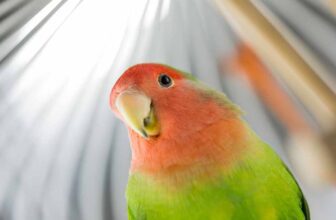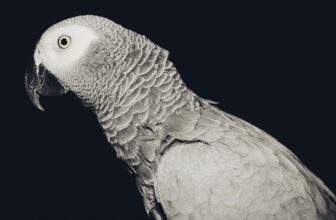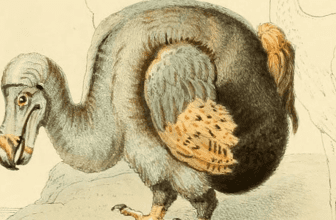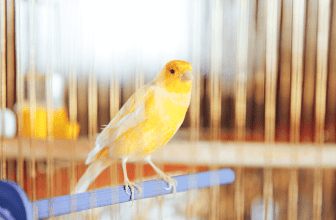The best-kept secret of the avian world is the Pionus parrot. It has fewer negative attributes than its popular companion parrot variants while retaining all of the positive qualities, especially in terms of their level of vocalization.
Pionus parrots used to be known as “red-vented” parrots due to the red feathers underneath their tail (aka their vent). They generally measure between 10 and 12 inches, with nearly-identical shapes to Amazon parrots. They even have the same square-shaped, short tail. They also have fleshy, bare eye-rings completely encircling their eyes. But that is where the physical similarities end.
In most other physical characteristics, the Pionus parrots are quite different than their brethren. Many are even surprised that biologists group these birds into the same species as parrots from the Amazon.
One of the biggest differences between a Pionus parrot and others is its somewhat subdued coloration. They are certainly not as flashy or colorful as their counterparts, which makes them not as popular. They are also rarer and they are certainly less prone to talking.
The differences between the Pionus and other parrots are notable, especially when compared against particular species. They are quieter than the African grey parrots, and smaller than their similar-looking, yet more feisty South American cousins, the Amazonian parrot. It isn’t even as flashy or vivid in coloration as most conures, though it is comparable in size.
With all of that said, it may seem rather odd that the Pionus is a common fascination between various bird lovers. While not the most popular bird, it certainly is a special one. People aware of the Pionus will speak on their behalf and rave about them, but the problem is that most don’t know many others who share their interests unless they meet them on the internet.
Let’s learn a bit more about the attributes, background, acquiring, and caring for this very special creature.
Pionus Parrot Natural Habitat
Eight species of the Pionus parrot have been identified to date. All of them are found residing across Central and South America, generally in mountainous or forested regions, as well as in savannas.
Pionus Parrot Personality And Behavior
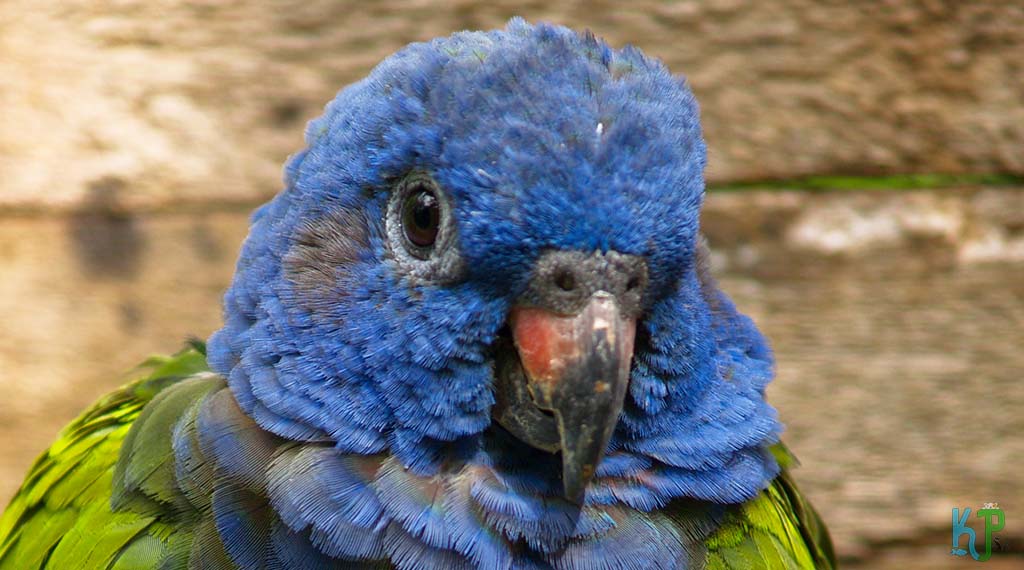
The Pionus parrot is a mid-sized bird that is generally known for being easy-going, quiet, and somewhat standoffish, by comparison to other parrot species that people tend to keep as pets. They are certainly quieter than the talkative Amazonian macaws and conures. They are much more easygoing than African greys and lovebirds. Perhaps a reason people love cockatoos is that they are social, an attribute that does not readily apply to the Pionus.
Those who own and live with Pionus parrots are quick to share that while not completely love muffins, the Pionus are quite affectionate, attentive, and sweet birds. They will also say that they aren’t as silent as it may be perceived, though they are quieter than others. In a house full of other, more vocal birds, the Pionus may get less attention. This is a shame because the Pionus actually enjoy spending time with the people they are familiar with.
The Pionus is also not a “one-person” bird, making them a quality family avian, but their relationship with people varies depending on the bird and the person. It isn’t advised, however, that children interact or play with the bird while unsupervised. Pionus parrots can bite, though their bites aren’t as formidable as the cockatoo or the Amazonian parrot. They are most prone to biting when they are frightened.
Typically the typical behavior in those situations is to be completely still, try to flee, or bite the source of their unnerved state. Some of the other defensive tactics performed by the Pionus parrot include hissing out short breath bursts, seeming like the bird is having trouble catching its breath, a behavior similar to cockatiels. Some owners have reported a musky, sweet odor emitted by the Pionus in those situations too.
When properly cared for, a Pionus can live for as long as 25 to 40 years, so they are certainly a long-term pet, save any unexpected incidents or illnesses. This is quite different than most other parrot varieties that do not live quite as long. If you decide to become one’s owner, know that you are getting into it for the long haul.
Pionus Parrot Diet, Care, Health, And Common Conditions
The main diet such as one of Nutri-Berries, Lafeber’s Premium Daily Pellets, and an assortment of fresh vegetables and fruits is perfect for a Pionus parrot. They tend to be good eaters, so if they are not consuming their usual meals, keep an eye on their overall health. They are prone to aspergillosis, visceral gout, and fungal infections.
Their diets need to include a lot of Vitamin A, as they are also susceptible to a deficiency in that regard. To make sure that you are meeting all of your Pionus parrot’s avian dietary needs, consume with your veterinarian who is experienced with birds.
Pionus Parrot Sound & Speech
The Pionus parrot isn’t the best parrot for talking, but certain individual birds develop a substantial vocabulary. Their “speaking” isn’t armed with as much clarity as some other parrots, often sounding more on the raspy side, but what the bird says is usually quite discernable.
As noted, they are quieter than many other birds, making them a perfect pet for a home that loves the presence of birds but appreciates times of quiet. This is specifically appealing to apartment dwellers. However, the bird does seem to correlate with the volume of the home, with louder homes having louder birds, a feature not exclusive to Pionus, but common to most parrots. If a house with a Pionus has barking dogs, loud TVs, and screaming kids, the generally docile Pionus is likely to pick up its volume as well.
Becoming A Pionus Parrot Owner
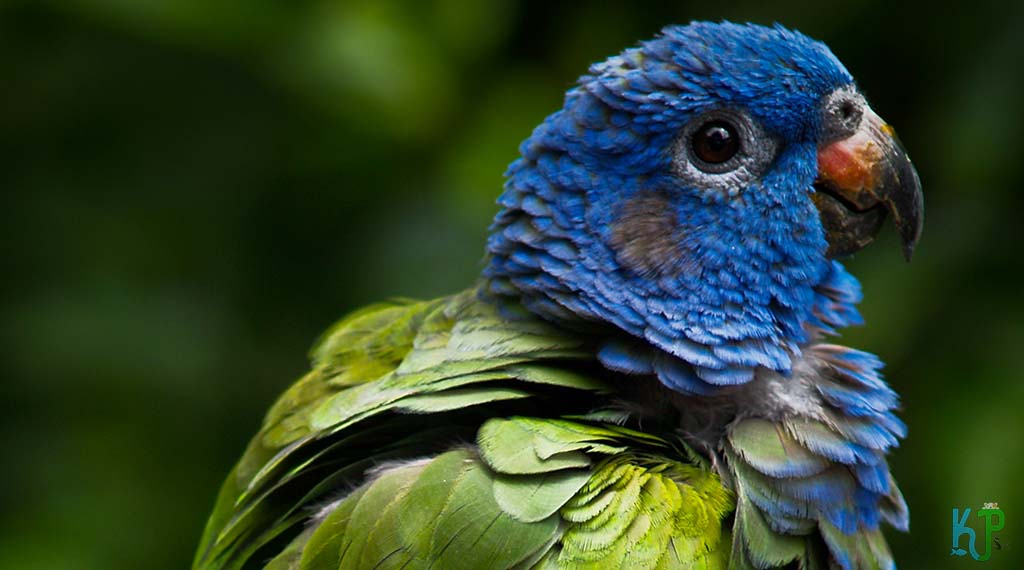
Out of the eight Pionus species, five are commonly available in pet stores and through breeders. Each has its own set of subspecies, but most of those variations are not typically found in the United States. The Pionus family is made up of:
- Blue Headed Pionus (Pionus menstruus)
- Bronze-Winged Pionus (Pionus chalcopterus)
- White-Headed Pionus (Pionus seniloides)
- White-capped Pionus (Pionus senilis)
- Dusky Pionus (Pionus fuscus)
- Scaly-Headed Or Maximilian’s Pionus (Pionus maximiliani)
- Red Billed Or Coral Billed Pionus (Pionus sordidus)
- Plum-crowned Pionus (Pionus tumultuosus)
The most commonly kept is the blue-headed Pionus generally because their shocking blue head on top of their bright green body is quite visually appealing. While juveniles are mostly green, after several rounds of molting, they will mature in feathering out.
The next most popular is Maximilian’s Pionus, which is duller in collar than its blue-headed cousin but is the largest of all of the Pionus parrots, at about 12 inches in length. Next in the popularity ranking is the white-capped Pionus, followed by the dusky and bronze-winged varieties. The latter two are not easy to find in the pet trade, but as breeders are becoming more aware of the demand, more are becoming available.
pionus parrot price
The most common Pionus parrot species that you can find in the market are the Blue-headed Pionus, the White-crowned Pionus, the Bronze-winged Pionus, the Dusky Pionus, the Maximillian Pionus, and the Speckled Pionus. Each of them has a different color and price range.
There are a few factors to consider when it comes to the cost of a pionus parrot. The subspecies can play a role in the price, with some subspecies being more expensive than others.
For example, Maximilian’s Pionus is considered one of the more costly subspecies, while the Blue-headed Pionus is deemed one of the more affordable options. Additionally, the bird’s age will also affect the price, with older birds typically being more expensive than younger ones. The breeding quality and the breeder’s reputation are also important factors to consider when determining the price of a pionus parrot.
The prices for different Pionus parrot species can vary, but here are some approximate ranges for different subspecies:
- Blue-headed Pionus: $800 to $1000
- White-crowned Pionus: $1000 to $1200
- Bronze-winged Pionus: $1000 to $1200
- Dusky Pionus: $1000 to $1200
- Maximillian Pionus: $1200 to $2000
- Speckled Pionus: $1000 to $1200
It is important to remember that owning a parrot is a significant commitment and financial responsibility. In addition to the initial purchase price, ongoing expenses such as food, veterinary care, and cage maintenance must also be taken into consideration. Parrots can live for several decades and require a lot of care and attention throughout their lives, so it’s important to be prepared for the long-term financial commitment that comes with owning a parrot.
Conclusion:
In conclusion, Pionus parrots are known for their calm and quiet personalities, making them a great choice for households with limited space. They are also relatively low maintenance when it comes to their diet and care. However, it’s important to remember that all parrots require attention and interaction to thrive.
If you’re interested in learning more about parrot care, be sure to read our next article on African Grey parrot personality, food, and care for more information.
Frequently asked questions:
Pionus parrot price?
The price of a Pionus parrot can vary depending on the specific species, age, and location. On average, Pionus parrots can cost anywhere from $600 to $1000. Keep in mind that the price also includes the cost of a cage, food, and other supplies.



